Justice for Displaced Populations
Displaced populations are often deprived of justice in both acute and protracted crises. They face discriminatory laws and experience limited access to adequate justice services, despite having urgent and complex justice needs. Many displaced people face challenges in accessing housing, employment, healthcare, and social services and they have limited legal protections or pathways to resolve their disputes. People-centered justice is a tool to resolve people’s day-to-day challenges across different sectors, and uphold their rights.
The Justice for Displaced Populations Initiative (J4DP) aims to address key challenges by strengthening knowledge and practice around solutions to justice problems faced by refugees, other migrants, and internally displaced populations. Our goal is to improve the way key actors across the humanitarian, development, and justice sectors collaborate to jointly understand, resolve, and prevent displaced populations’ justice problems.
J4DP was founded at the Center on International Cooperation at New York University in 2022 as a partnership between the Pathfinders for Justice and Humanitarian Crises programs. In 2024, a partnership was formed between Pathfinders for Justice at CIC and The New School’s Zolberg Institute on Migration and Mobility to continue this work.
Activities
- Convene key stakeholders from the justice, humanitarian, and development sectors, together with displaced persons, to facilitate collaboration for effective policymaking.
- Lead an informal network of invested stakeholders to create shared priorities, collective action, and key messages on access to justice for displaced populations.
- Research, identify, analyze, and promote best-practices in people-centered policy responses at national and regional levels which integrate access to justice principles.
- Provide consultation and technical advice to interested multilateral and national agencies.
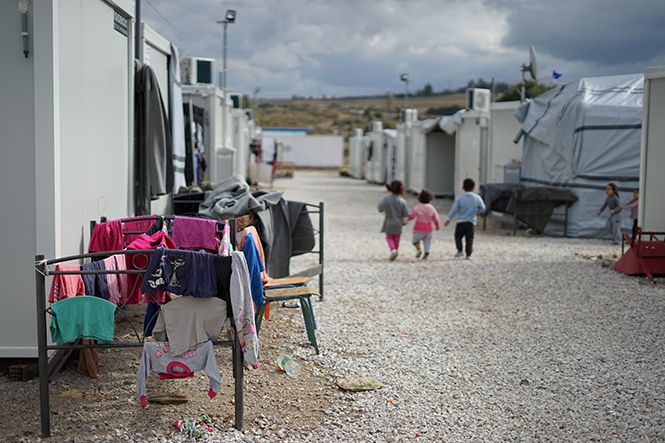
Featured Reports
-
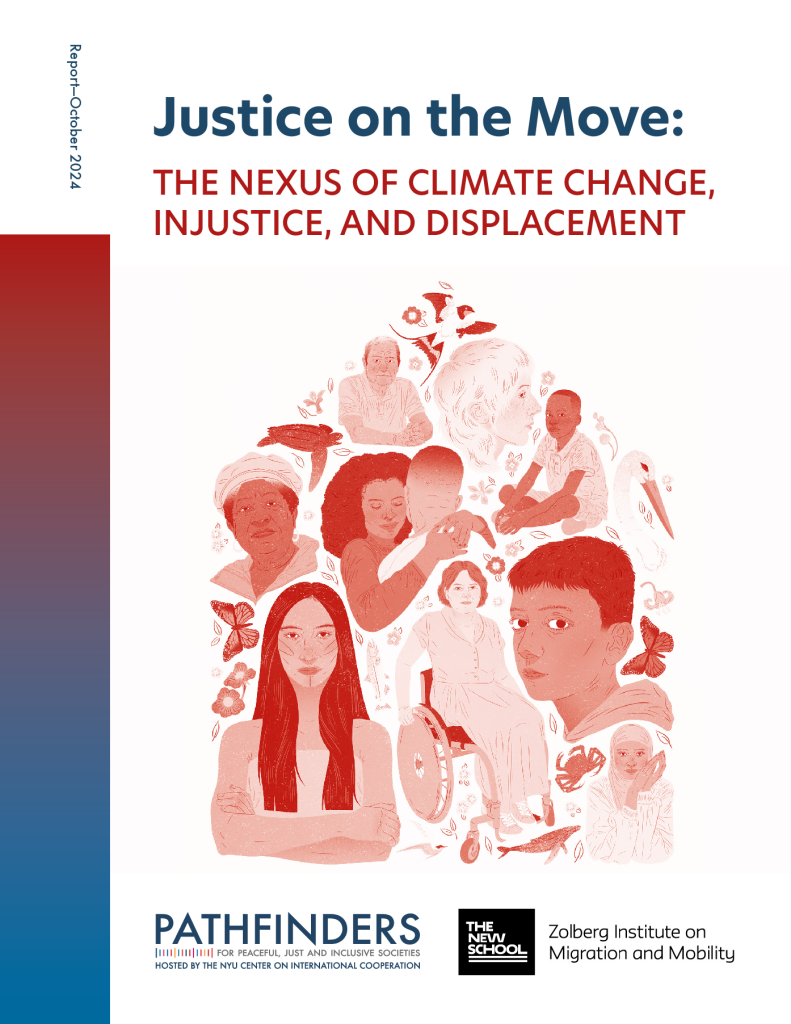
Justice on the Move: The Nexus of Climate Change, Injustice, and Displacement By bridging the gaps between climate justice, displacement, and legal support, this paper argues for more effective, equitable solutions that address the root causes of displacement and support climate-impacted communities in their fight for justice.
-
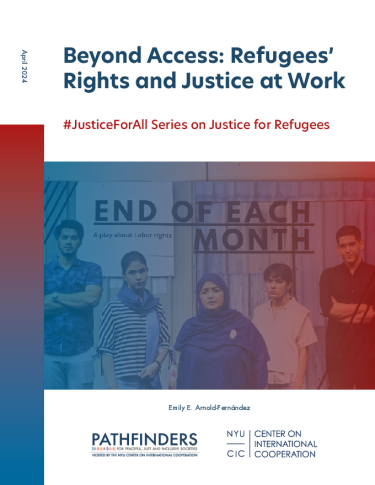
Beyond Access: Refugees’ Rights and Justice at Work This paper aims to lay a common foundation for solutions to the justice problems refugees face in the labor market and also supports the thesis that ensuring access to justice in the workplace for refugees can facilitate mutual gains, uphold human rights, and support the achievement of the Sustainable Development Agenda.
-
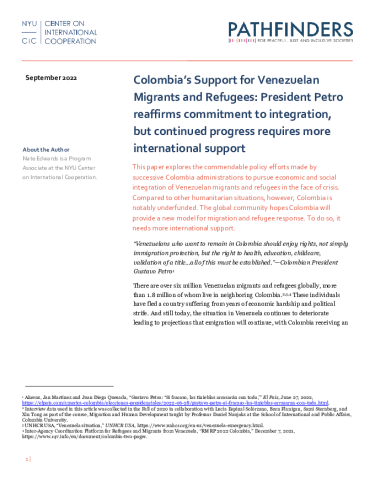
Colombia’s Support for Venezuelan Migrants and Refugees This paper explores efforts made by successive Colombia administrations to pursue integration of Venezuelan migrants and refugees in the face of crisis.
-
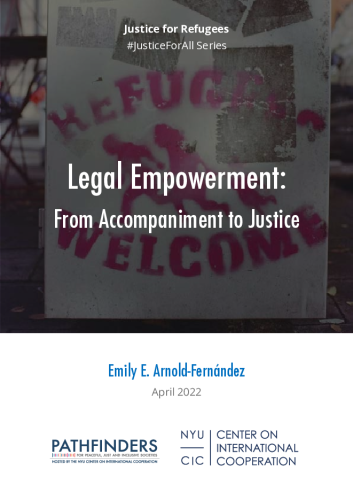
Refugee Legal Empowerment: From Accompaniment to Justice This paper grapples with legal empowerment and how it can be achieved to have #JusticeForRefugees, looking at its role, its availability, and how it is practiced in relation to refugee communities.
Resources
Find more publications, commentary, and analysis related to Justice for Displaced Populations.